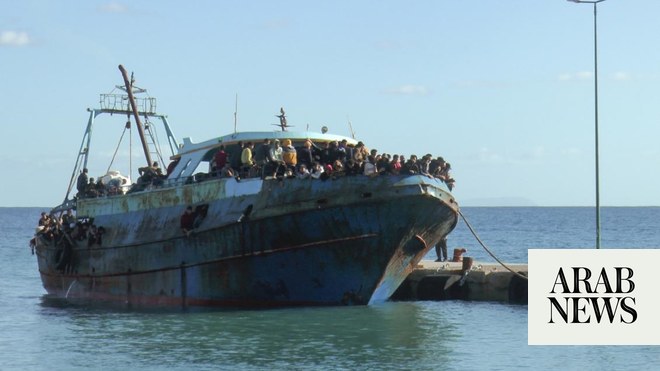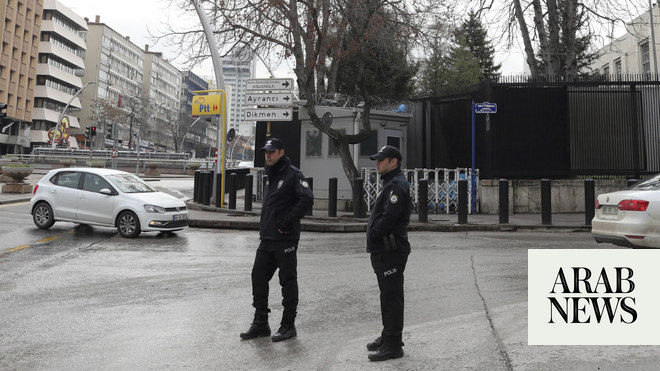
Spain’s interior minister has defended the behaviour of police who were filmed beating and pepper-spraying a young sub-Saharan African man as he climbed over the border fence between Morocco and Spain’s north African enclave of Melilla, insisting the officers’ use of force was “proportionate”.
The video emerged last week as about 3,700 people tried to scale the six-metre (20ft) fence over two days. On Wednesday, an unprecedented 2,500 people tried to clamber over the border, of whom 491 succeeded. The following day, 1,200 people attempted to cross over, with 380 making it.
The incident, which took place as Spain drew up an express system to take in people fleeing the war in Ukraine, has been criticised by human rights groups and has drawn the attention of Spain’s public ombudsman.
Spain’s government, however, said “the level of aggression” displayed by some of those trying to cross into Melilla was unprecedented, adding that about 60 Guardia Civil and Policía Nacional officers, and 52 migrants, were injured on Wednesday and Thursday. Its delegate in the enclave said some people had screwed bolts to their shoes to help them cross, posing “a huge risk” to police.
Footage of the incident, shot by Spain’s national broadcaster, RTVE, shows the man being struck as he descends, and then again as he reaches Spanish soil and is beaten to the ground and set upon by at least five police officers.
Virginia Álvarez, a refugee and migration expert at Amnesty International Spain, said the images were especially jarring as Spain prepared to help Ukrainian refugees.
“While that’s going on, migrant people on our own borders are being punished with extreme brutality,” she said. “Is this the image we want to project? Is that how we’re going to take in people who may also be fleeing possible conflict and persecution?”
Andalucía’s Pro-Human Rights Association said the Spanish government needed to provide an explanation about the incident and on “the pushbacks [summary returns] that are taking place”.
Spain’s public ombudsman, Ángel Gabilondo, said he had asked the government for more information on “what would appear to be a disproportionate use of force by the officers”.
He added: “Border control should be undertaken with respect for the guarantees and fundamental rights of everyone, whether they are agents of authority or people trying to enter national territory.”
But speaking on a visit to Melilla on Saturday, Spain’s interior minister, Fernando Grande-Marlaska, described the border breaches as “extremely violent” and said meat hooks, sticks and hammers had been used in the crossings.
The minister also said the level of violence the police had endured was evident in the cracked helmets and damaged ballistic shields he had been shown.
Grande-Marlaska said that while police officers were always bound by the law, they had shown a “proportionate” response to the situation.
“A democratic state with the rule of law cannot allow its borders – which in this case are EU borders – to be violently attacked,” he said. “Nor can it allow its public servants in the Guardia Civil and Policía Nacional, who provide the necessary space for all of us to be able to exercise our rights and freedoms, to be assaulted.”
In May last year, about 10,000 people – including 2,000 minors – crossed into Spain’s other north African enclave, Ceuta, over the course of a few days.
Their arrival led the Spanish government to accuse Morocco of playing politics with its borders after Madrid allowed the leader of the Western Sahara independence movement to enter Spain for Covid treatment.












